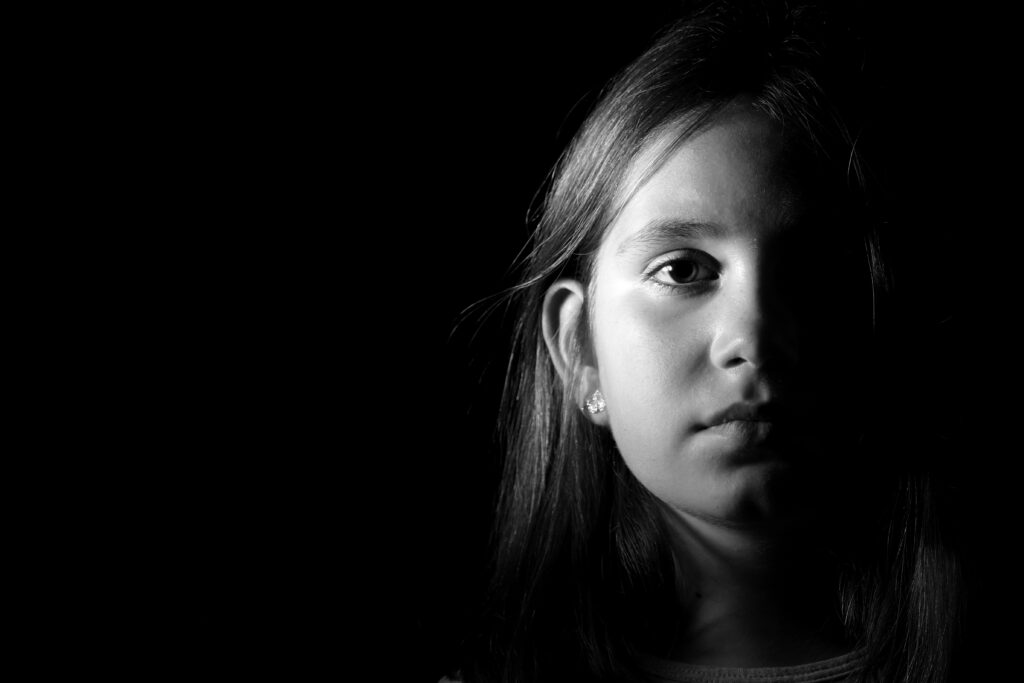The new documentary “No Way Back: The Reality of Gender-Affirming Care” criticizes transgender ideology from a self-described “liberal, west coast Democrat” perspective. Despite facing significant resistance from trans activists, it has been making an impact.
The film will be showing in select theaters across the country during a one-day AMC Theatres Special Event on Wednesday, June 21st at 4:30 and 7:30 pm. It will be available online and on DVD starting July 2nd.
Below, Joshua Pauling interviews producer Vera Lindner.
Joshua Pauling (JP): Thanks for taking the time to discuss your new documentary. It really is a powerful depiction of what is happening to people when transgender ideology takes over. I especially found the detransitioners’ stories compelling. The story you tell throughout is decidedly reasonable and anchored to reality. Kudos to you all for producing such a thorough and moving documentary on such an important and controversial topic. And much respect for being willing to say hard but true things in the documentary.
Start your day with Public Discourse
Sign up and get our daily essays sent straight to your inbox.How has the response been to the film thus far?
Vera Lindner (VL): We’ve received tons of gratitude, tears, and donations. The most humbling has been the resonance the film created in suffering parents. I wept many times reading grateful, heartbreaking messages from parents. People are hungry, culturally speaking, and are embracing our film as truth and facts, and a “nuanced, compassionate, deeply researched” project.
JP: That is great to hear, and interesting that there has been an overwhelming response from parents. Parents are frequently the forgotten victims of this ideology.
How has the film been doing when it comes to numbers of views and reach?
VL: Since February 18th, the film has been viewed 40,000 times on Vimeo, after it was shut down in its first week and then reinstated due to publicity and pressure from concerned citizens. Many bootlegged copies have proliferated on Odysee, Rumble, and such, so probably 30,000 more views there as well. After we put it on Vimeo on Demand in mid-April, it’s getting purchased about 50 times a day. Our objective is the widest possible reach.
Since February 18th, the film has been viewed 40,000 times on Vimeo, after it was shut down in its first week and then reinstated due to publicity and pressure from concerned citizens.
JP: Sad to say, I’m not surprised that it was shut down within a few days. Can you explain more about how such a thing happens? In what ways has it been blocked or throttled?
VL: Vimeo blocked it on the third day due to activists’ doing a “blitz” pressure campaign on Vimeo. Then they reinstated it, after news articles and public pressure. Our private screening event in Austin was canceled due to “blitz” pressure on the venue (300 phone calls by activists in two days). These experiences help us refine our marketing strategy.
JP: I guess that shows the power of public pressure, from either side. You know you’ve touched a nerve when the response has been both so positive as to receive countless heartfelt letters from people, and so harsh that activists want it canceled.
What do you see as next steps in turning the tide on this topic as a society? What comes after raising awareness through a documentary like this?
VL: Our objective was to focus on the medical harm and regret of experimental treatments. All studies point to the fact that regret peaks around eight to eleven years later. Yet the message of the activists toward the detransitioners is, “It didn’t work for you, you freak, but other people are happy with their medicalization.”
Our expectation is that conversations about the long-term ramifications of this medical protocol will start. We need to talk not only about how individuals are affected, but the society as a whole. Wrong-sex hormone treatment and puberty blockers lead to serious health complications that could lead to lifelong disability, chronic pain, osteoporosis, cardiac events, worsening mental health. SRSs (sex-reassignment surgeries) cost hundreds of thousands of dollars. These are not just one individual’s personal issues.
The economics of our health insurance will be impacted. The ability of these people to be contributing members of society will be impacted profoundly. The Reuters investigation from November 2022 stated that there are 18,000 U.S. children currently on puberty blockers and 122,000 kids diagnosed with gender dysphoria (and this is only via public insurance data, so likely an undercount). These all are future patients with musculoskeletal, cardiovascular, and mental illnesses for a lifetime. A hysterectomy at twenty-one can lead to early dementia, early menopause, and collapse of the pelvic floor organs.
The economics of our health insurance will be impacted. The ability of these people to be contributing members of society will be impacted profoundly.
I don’t yet see conversations about the long-term health implications of “gender-affirming care,” particularly in relation to how insurance, the labor force, interpersonal relationships, and future offspring will be affected. Everyone wants to be affirmed now and medicalized now. But there are lifelong implications to experimental medicine: autoimmune illnesses, cancers, etc. Sexual dysfunction and anorgasmia have real implications on dating, romantic life, and partnering up. A few people are talking about this on NSFW posts on Reddit.
JP: It’s interesting how speaking out against trans ideology and gender-affirming care creates some unlikely alliances across the political and religious spectrum. What do you see as the potentials and pitfalls of such alliances?
VL: We align with people who are pro-reality, who respect core community values such as truth and honesty, and who see the human being as a whole: body and soul. There is no metaphysical “gendered soul” separate from the body. Teaching body dissociation to kids (“born in the wrong body”) has led to a tidal wave of self-hatred, body dysmorphia, depression, anxiety, and self-harm. We are our bodies, and we are part of the biosphere. We respect nature and the body’s own intricate biochemical mechanism for self-regulation, the endocrine system. We believe that humans cannot and should not try to “play God.” We are students of history and know that radical attempts to re-engineer human society according to someone’s outrageous vision (read Martine Rothblatt’s The Apartheid of Sex) have led to enormous human cataclysms (communism, Chinese cultural revolution).
We are our bodies, and we are part of the biosphere. We respect nature and the body’s own intricate biochemical mechanism for self-regulation, the endocrine system.
JP: Well, then count me a realist, too! Funny you use the term pro-reality. I’ve written similarly about the possibility of realist alliances. While this makes for some improbable pairings, there can be agreement on the importance of fact-based objective reality and the givenness of the human body.
Realists can agree that the world is an objective reality with inherent meaning, in which humans are situated as embodied, contingent beings. Such realists, whether conservative, moderate, or progressive, might have more in common with each other on understanding reality and humanity than some on their “own side” whom I call constructivists: those who see the world as a conglomeration of relative meanings, subjectively experienced by autonomous, self-determining beings, who construct their own truth and identity based on internal feelings.
But I do have a related question on this point—a bit of respectful pushback, if I may.
Your pro-reality position seems to have implications beyond just the transgender question. Can one consistently oppose the extremes of gender-affirming care while upholding the rest of the LGB revolution? If our male and female bodies matter, and their inherent design and ordering toward each other mean something, then doesn’t that raise some questions about the sexual revolution more broadly?
As we see the continued deleterious effects on human flourishing unfold as thousands of years of wisdom and common sense regarding sex and sexuality are jettisoned, there are both religious and non-religious thinkers raising this question, though some go farther than others. I think, for example, of Louise Perry’s The Case Against the Sexual Revolution, Christine Emba’s Rethinking Sex, Mary Harrington’s Feminism Against Progress, and Erika Bachiochi’s “Sex-Realist Feminism.” An enlightening panel discussion with many of these thinkers was co-hosted by Public Discourse earlier this year. When the real human body is considered, its holistic structure as male or female is clearly ordered and designed to unite with its complement.
If our male and female bodies matter, and their inherent design and ordering towards each other mean something, then doesn’t that raise some questions about the sexual revolution more broadly?
How does this reality relate to the rest of the sexual revolution? If one argues that individuals should be able to express themselves sexually and fulfill their desires with no external limits beyond human desire or will, how does one justify saying that transgenderism is off-limits?
VL: I will answer the question, but I need to say that this is my personal opinion. I’m fifty-five and have worked in entertainment for more than thirty years, and in Hollywood for twenty-five years. The entertainment industry attracts LGBT people, so I’ve hired, mentored, befriended, and promoted LGBT and gender-non-conforming people every day of my career. I believe that being gay or lesbian is how these people were born. Some were affected by their circumstances, as well, but in general I believe that homosexuality is innate, inborn, and has existed for millennia. There were a handful of “classic” transsexual women as well. I have three close friends who transitioned in their late forties.
But the explosion we are seeing now is different. A 4,000-percent increase of teenage girls identifying as trans? This is unprecedented. Mostly these are autistic, traumatized, mentally ill teens who seek to belong, who wish to escape their traumatized brains and bodies, who have been bullied relentlessly (“dyke,” “fag,” “freak”) and now seek a “mark of distinction” that will elevate their social status. Instead of being offered therapy, deep understanding, and compassion for their actual traumas, they are being ushered toward testosterone, mastectomies, and hysterectomies. This is not health care. The tidal wave of regret is coming, because these adolescents were never transsexual to begin with. Many of them are lesbians or gay boys who have internalized so much homophobia and bullying that they would rather escape all of it and become someone different than deal with it.
This is what we want to address. Kids explore identities. This is a natural process of discovering who they are. Medicalizing this exploration cements this exploration they were doing when they were teens. Life is long, and one goes through many phases and many “identities.” To be “cemented” for a lifetime in the decision you made as a distressed sixteen-year-old to amputate healthy sex organs does not make sense.
JP: The rise in the rate of transgender identification is indeed stunning, as is the stark increase in the percentage of Gen-Zers who identify as LGBT. What those trends portend is a live question, as are the varied possible causes. And as you say, there is a tidal wave of regret building, from those who have been pushed toward gender transition. We will all need to make special effort to love and care for them.
You’ve been so gracious with your time. As we conclude, are there any other comments you’d like to share with our readers?
VL: Find a theater near you to attend the theatrical one-day premier on June 21st. Then the movie will become available online and via DVD on July 2nd. Watch the documentary and pass it on to all in your circles!
And ask commonsense humanistic questions:
– Can adults make decisions on behalf of kids that will forever change the path of the kids’ lives?
– Is it worth it to ruin one’s health in the name of a belief system?
– Is what you are reading in academic medical research based on evidence, or pseudo-science?
– If humans have been going through puberty for millennia, who are we to mess with that now?
– Is puberty a disease?
JP: Thank you for your work on this vital issue. I hope this documentary continues to make an impact. And realists unite!














